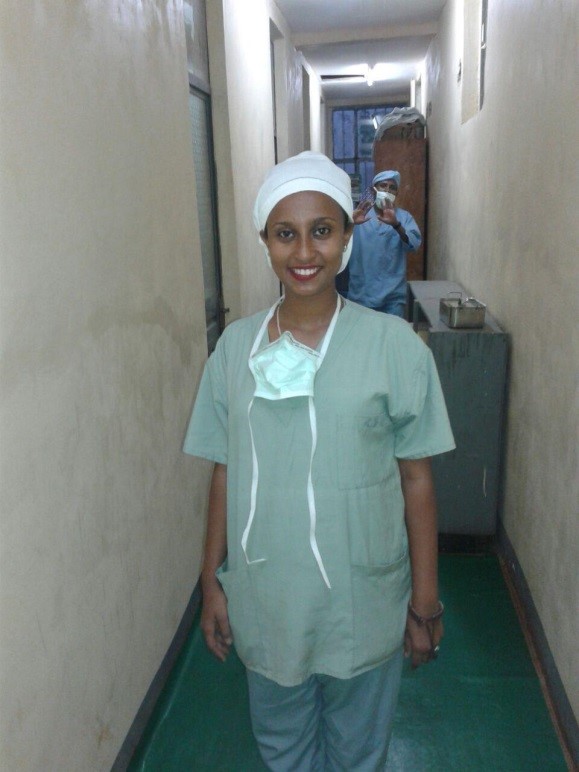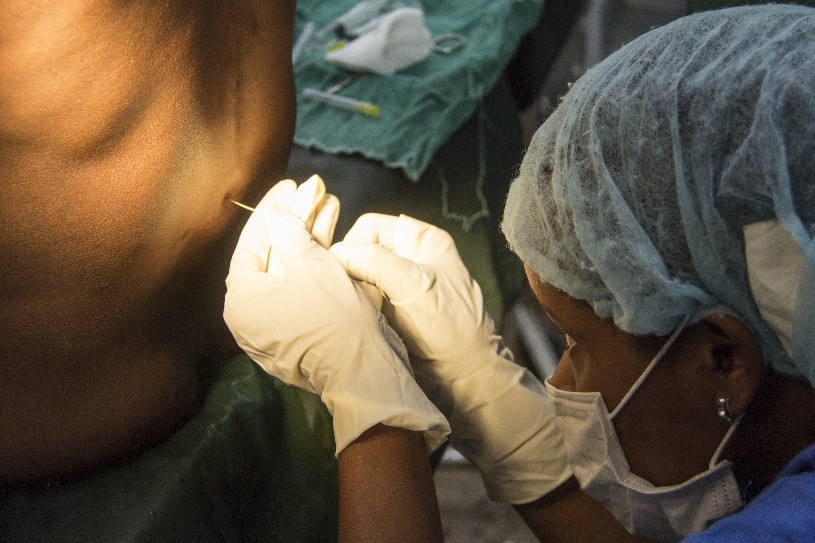
Hosaina, Ethiopia — Ayelech Kebede, a 25-year-old mother of two, had been laboring for over 36 hours when she arrived at the Homecho Primary Hospital in Hadiya Zone. She had traveled 15 kilometers from her rural kebele to reach the facility, and was weak and in a lot of pain.
Upon admission, the surgeon on duty, Hermela Wosenu, an anesthetist at the facility, and her colleagues, prepared Ayalech for surgery. The surgeon confirmed that she would need a cesarean section immediately or risk losing the baby or her own life.
Hermela led her team in providing spinal anesthesia during the operation. This included running the appropriate screening tests, and providing the required pre-operative medication. Two hours later, Ayelech was happy and smiling as she held her healthy baby. The worry and pain she had experienced in the previous hours were now forgotten. “I am so happy to hold my baby alive. You saved me and my baby,” Ayelech said, looking up at the team who helped her.
Anesthetists like Hermela, who have recently graduated from public universities, are contributing to saving the lives of mothers suffering from complicated labor and its outcomes in rural areas. Hermela is a graduate of Dilla University’s health science college’s anesthesia program, where she gained the knowledge, skills and competencies required to provide quality anesthesia services. “Our dedicated teachers, the up-to-date books available in the library and the well-equipped skills lab helped me and my colleagues to be competent graduates,” Hermela explained. She continued: “I’m happy to serve my community as an anesthetist and enjoy the positive outcome after the procedure.”
The USAID-funded Strengthening Human Resources for Health (HRH) Project has been supporting Dilla University since 2012 to improve the quality of education, including developing faculty skills, strengthening infrastructure, revising curriculum, improving clinical education, establishing a quality improvement system, and initiating gender transformative activities.

The HRH Project support included establishment of a skills lab for the anesthesia program, as well as donation of an anesthesia machine, mannequins, skills lab equipment, computers and books on anesthesia (electronic and hard copies). Dilla University provided leadership and oversight for the implementation of activities, resulting in a revised anesthesia curriculum and development of learning and assessment tools for the anesthesia program. A total of 71 faculty were provided with pedagogic and clinical update training, and the Health Science Education Development Centers signed memoranda of understanding with seven health facilities to increase access to clinical practice opportunities for students. The national anesthesia quality standards were introduced and implemented to identify gaps in teaching and develop strategies to address them.
These efforts have translated to improved student learning—94% of the anesthesia students passed the recently introduced national licensure examination administered in 2017.
Dr. Tesfanew Bekele, surgeon and chief executive director of the health science college and referral hospital, said, “Recent graduates of the college I am working with are competent to provide anesthesia service.”



